Choosing the right payment method can make or break your business. High transaction fees, delayed payments, and unreliable systems can eat into profits and frustrate customers. But with so many options like POS machines, bank transfers, and fintech apps, how do you decide?
1. POS Machines: Easy to Use But Watch the Fees
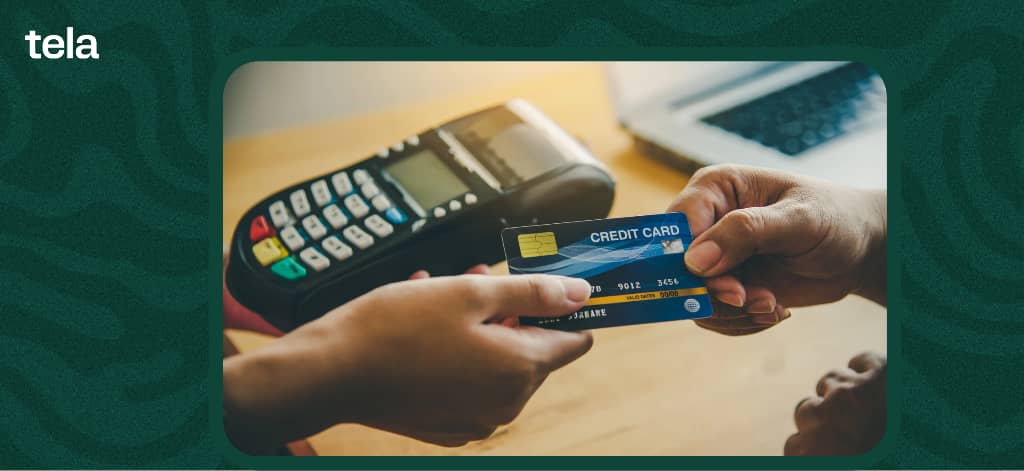
POS (point of Sales) has become a go-to payment solution for Nigerian businesses, offering a quick and convenient way to accept payments. They allow customers to pay via debit cards, reducing the need for cash transactions.
Benefits of POS Machine
● Faster Transactions: POS machines make transactions faster, helping you serve more customers in less time. Instead of waiting for cash to be counted or change to be given, customers can complete their payments in under a minute with just a card tap or PIN entry.
● They Work for Almost Everyone: POS machines make it easy for almost anyone to make payments, regardless of whether they use mobile banking. Customers who don’t have access to internet banking can simply use their debit or credit cards.
Challenges of POS Machines
● They Can Be Expensive: POS machine charges in Nigeria typically range from ₦100 to ₦150 per transaction, depending on the service provider. While this might seem small, these fees can quickly add up, especially if you process multiple transactions daily.
● Loss of Sales Due to Network Problems: POS network issues can cause transactions to fail, leaving both you and your customers frustrated. Payment issues can slow down operations, causing delays and long queues, which may drive customers away.
Tela tip : POS is best for Physical shops, supermarkets, restaurants, and any business where customers expect to pay with cards. Works best when your average sale is over ₦5,000, so the fee doesn't take much of your profit.
2. Bank Transfers: Simple But Sometimes Slow
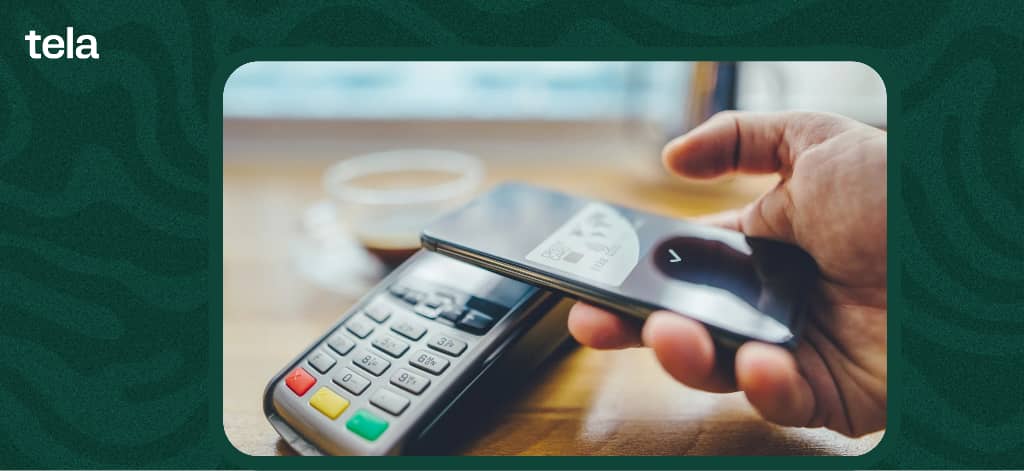
Bank transfers have become very common in Nigeria. Customers send money directly from their bank account to yours without needing any tools.
Benefits of Bank Transfers
● No Special Equipment Needed: Unlike POS machines, bank transfers don’t require any extra equipment. All you need is a bank account, making it an easy payment option. There’s no need to invest in a POS device or worry about repairs and upgrades, which saves money in the long run.
● Money Is Tracked and Secure: Every bank transfer leaves a digital record, making tracking payments easy. You can see exactly who paid, when the payment was made, and the amount received. This level of transparency helps in keeping accurate financial records.
Challenges of POS Machines
● Fees Can Vary: One common issue with bank transfers is the inconsistency in fees. Transfer charges can range from ₦10 to ₦100, depending on the banks involved and the transaction type. Some banks also impose daily transfer limits, which can be frustrating for business owners who need to send or receive large amounts.
● Payment Timing Is Unpredictable: Not all bank transfers are processed instantly. While some transactions go through within seconds, others can take hours or even 1-2 days to reflect. This unpredictability can create problems with bank transfers today, especially for businesses that rely on steady cash flow.
● Confirming Payments Can Be Tricky: Unlike cash or POS transactions, where payments are confirmed immediately, bank transfers require manual verification. You need to constantly check their bank accounts to confirm if a payment has been received.
Tela tip : Bank transfers work best for service businesses, freelancers, consultants, online sellers, and business-to-business transactions. They are ideal when your average transaction is higher, so the transfer fee is a smaller percentage of the total.
3. Fintech Apps: Modern Solutions with Growing Popularity
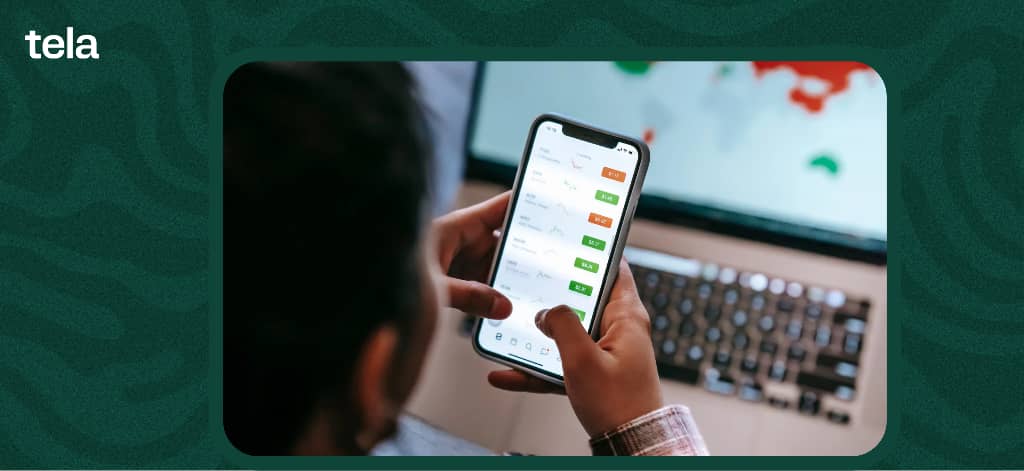
Fintech apps like Tela, Opay, Moneypoint, Kuda, PalmPay, and Flutterwave are revolutionizing business payments in Nigeria. Unlike traditional banking systems, these apps offer faster transactions, lower fees, and a better user experience, making them a preferred choice for many business owners.
Benefits of Fintech Apps
● Faster Transactions and Lower Fees: Fintech apps process payments instantly, so you don’t have to wait long to receive your money. Many charge little to no fees for transfers, making them a more affordable option than POS. This ensures smooth payments for both you and your customers.
● Automatic Payment Tracking: Fintech apps save you time on bookkeeping by automatically tracking which customer made a payment and when. The app records and categorizes transactions, simplifying financial management and reducing accounting errors.
● Better Financial Management: Fintech apps help businesses track their money easily by showing all transactions in one dashboard. They also offer financial tools like budgeting features, expense tracking, and invoice generation, allowing you to manage your finances effortlessly.
Challenges of Fintech Apps
● Some Customers Are Hesitant: Customers, especially older or less, may not trust fintech apps or feel comfortable using them. You might need to explain how they work and reassure them about security.
● Internet Dependency: Both you and your customers need a stable internet connection, which can be a problem in areas with poor network coverage.
● Withdrawal Limitations: Some fintech wallets have daily transaction limits, which may not be ideal for if you are handling large sums.
Tela tip : Fintech apps are best for startups, small business owners, accountants and Freelancers especially those selling online or through multiple channels. They are great for businesses looking to grow, reduce costs, and get better insights into their finances.
How to Choose the Right Payment Method for Your Business?
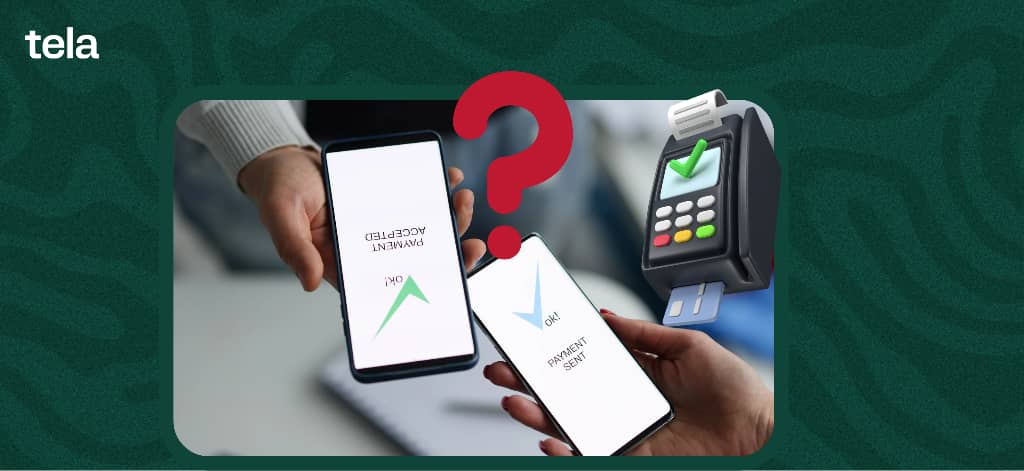
Your Business Type Matters
If you have a physical shop, POS machines are useful, but adding fintech apps can reduce costs.
As an online retailer or service provider you may find bank transfers and fintech apps more convenient.
If you sell both online and in-store, offering multiple options gives you more flexibility.
Consider Your Typical Sale Amount
For small payments, fintech apps are cheaper.
For large transactions, bank transfers help avoid high fees.
If you handle both, giving customers different choices works best.
Know Your Customers
Tech-savvy buyers prefer fintech apps.
Older customers may trust POS machines or bank transfers more.
If you serve different types of customers, offering various payment options keeps everyone happy.
How Tela Stands Out in Financial Management
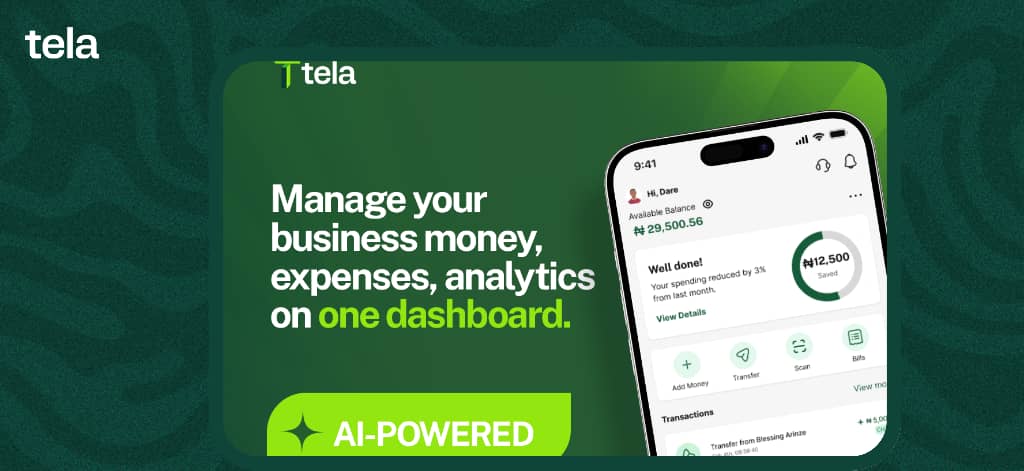
Cost Savings: Tela offers 40% lower fees than traditional POS solutions. There are no hidden account maintenance charges. You also get free transfers between Tela accounts.
Reliable Service: Tela works even during network congestion. It boasts a 99.8% uptime performance. Some transactions can even be processed offline.
AI Business Insights: You get an instant view of your cash flow. Tela automatically categorizes expenses for easier tax preparation. Custom reports help track business performance over time.
Growth Tools: Tela provides invoice generation and payment reminders. Inventory tracking connects seamlessly with your sales. Customer management tools help track purchase history.
Final Thoughts
The best payment method depends on your business model, transaction size, and customer preferences. Using a mix of POS, bank transfers, and fintech apps ensures flexibility, cost savings, and convenience. If you’re looking for a fintech solution that offers speed, reliability, and lower costs.